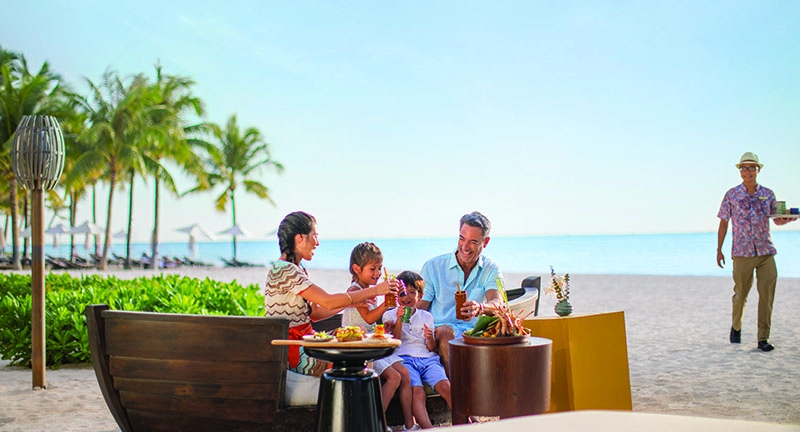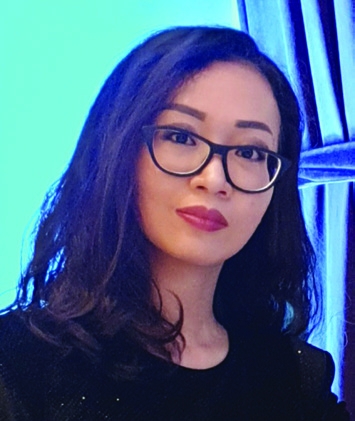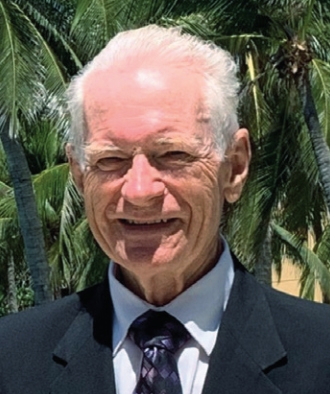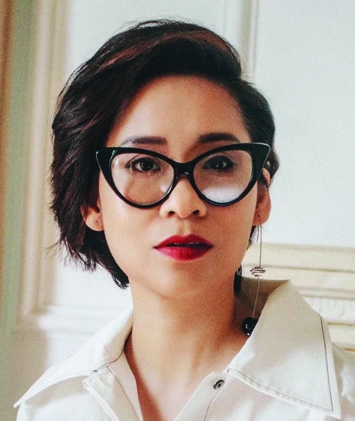Piloting border reopening for fully vaccinated foreign travellers
 |
| Piloting border reopening for fully vaccinated foreign travellers |
On June 26, Prime Minister Pham Minh Chinh asked the Ministry of Health (MoH) and the Ministry of Culture, Sports and Tourism to quickly pilot the use of vaccine passports with international visitors for several tourist centres that promise to keep related risks at bay, such as Phu Quoc Island in Kien Giang province.
The People’s Committee of Kien Giang immediately petitioned the MoH to allow the province to organise vaccination against COVID-19 for all local residents, backed by the central budget, local budget, and the lawful mobilisation of other sources.
Chairman of Kien Giang People’s Committee, Lam Minh Thanh, explained that the province will propose to the government to prioritise vaccinations for the island’s 100,000 residents so that they can return to business and receive foreign guests by September or October this year.
“The key point in opening international tourism is that all islanders must be fully vaccinated to achieve herd immunity,” said Thanh.
The vaccination plan is expected to be implemented in 16-18 weeks as soon as vaccine sources are provided. However, Thanh acknowledged that the biggest challenge now is the scarcity of vaccines, while manufacturers only accept exclusive negotiations with the government, so the purchase of vaccines by other agencies remains difficult.
Kien Giang also proposed that Phu Quoc would be allowed to receive Russian tourists who have been vaccinated. The pilot would be carried out under a closed isolation model through charter flights. Guests would have to stay at one location with restricted movement. After that, an assessment of the first trial with vaccinated Russian tourists would be conducted, with possible extensions to welcome tourists from other countries that have completed vaccination.
Travel businesses excited
The trial is considered a good signal for Vietnam’s tourism market in the latter months of the year. The choice of Phu Quoc to pilot welcoming international visitors could be a viable option as the island is secluded and loved by many international tourists, especially during the high season in October.
“It’s completely feasible,” said Nguyen Tien Dat, CEO of AZA Travel.
Dat was previously sceptical about the safety of vaccine passports, and he did not fully endorse the proposal to welcome foreign tourists. However, only three months after Vietnam launched the community vaccination campaign, his opinion seems to have changed.
“The US and Europe have begun to welcome tourists. The sight of European stadiums filled with spectators cheering at football matches was a complete surprise. Meanwhile, Vietnam remains closed to tourists,” Dat lamented.
“The pilot project to reopen international tourism in Phu Quoc sparks new hopes for us tour operators,” he added.
The hopes of relying on the domestic tourism market for the recovery of many Vietnamese tourism businesses has been extinguished since the latest wave of the pandemic broke out in the summer.
Struggling businesses have now waited for more than a year, while many neighbouring countries such as Thailand, Indonesia, Singapore, and Japan, as well as many European countries, seem to be getting ready to open up for tourism.
“Thailand and Cambodia have a specific roadmap. We should also speed up, or otherwise lose the chance to attract international visitors. The reputation of the country sometimes lies in the timely planning,” said Nguyen Ngoc Toan, director of Images Travel.
Representatives of tourism businesses seem to agree with the new pilot under the low-contact model. That is, people with vaccine passports can travel in a separate area and wherever the vaccination rate is high enough, but safety measures will still be in place to prevent and control the pandemic.
“We have to balance the benefits and risks. Along with the open-door policy, Vietnam needs effective communication so that people and businesses can coordinate their actions to welcome tourists back, to ensure the safety of both the community and visitors and to bring in a large source of revenue from tourism. If we don’t do well, we may disappoint many international guests because of the discriminatory culture,” said Vu Van Tuyen, CEO of Travelogy, which specialises in welcoming foreign guests.
According to suggestions from businesses, Vietnam’s tourism industry should develop a specific roadmap for opening and agree on a timeline for businesses to understand information as well as be proactive in promoting to foreign markets.
Some businesses believe that the right time to open to international visitors is around September or October. Singapore, France, Germany, South Korea, and Russia are the countries that Vietnam will most likely focus on when reopening flights.
Replicating Phu Quoc’s model
Responding to the expectations of businesses, a representative of the Vietnam National Administration of Tourism (VNAT) said that welcoming international visitors is an important issue, but the highest priority is still to ensure the safety of the local population.
“The Phu Quoc model will be piloted step-by-step on the market, including with trying appropriate flight forms and a selection of suitable destinations and products. Only service businesses that are qualified and meet the requirements of pandemic prevention and control will be able to welcome guests,” the representative said.
In addition to Phu Quoc, VNAT also received many recommendations to expand the pilot model at some other destinations such as Hoi An, Cat Ba, Con Dao, Vinpearl Land Nha Trang, and many more. These are isolated areas, close to airports, with a low population surrounding them, which could be quickly vaccinated.
Previously, Quang Nam also proposed piloting to welcome guests from South Korea to stay at the complex resort Nam Hoi An (Hoiana) in Duy Xuyen district and Tui Blue Nam Hoi An in Nui Thanh district. South Korean tourists with vaccine passports could then arrive at Chu Lai airport in the form of charter flights and could stay for 5-10 days.
If successful, Phu Quoc’s model is expected to pave the way for the appearance of many other such projects in Vietnam, especially as other countries are taking concrete actions to restore tourism.
“The pandemic brought the industry down to spending levels not seen in over 15 years,” said Bricklin Dwyer, Mastercard chief economist and head of the Mastercard Economics Institute.
“While a lot of uncertainty remains, pent-up savings, a desire to venture farther from home, and the green light from governments could all provide significant tailwinds for the continued travel recovery.”
David Mann, chief economist for Asia-Pacific, Middle East, and Africa at the Mastercard Economics Institute commented, “Although many markets in Asia-Pacific are yet to see international borders open, there are some early bright spots in domestic travel recovery.”
| Kate Quyen Nguyen - Marcom manager Hôtel Perle d’Orient Cat Ba
Due to COVID-19, Vietnam should have plans to support companies, especially in the hotel industry. However such support should be planned carefull, and the government should choose just one destination for piloting as we are not fully sure that vaccinated visitors are safe, even after quarantine. After the succesful trial, deployment can continue in other destinations. As one of Accor’s properties in Vietnam, we are following the corporation’s guidelines. During COVID-19, we have been applying measures to protect both our employees and guests. It is possible to create special healthcare holidays for fully vaccinated travellers in quarantine. Our hotel is preparing and encouraging our employees to be vaccinated. In many countries, the governments provide free vaccines for their citizens. However, we know Vietnam is a developing country and the economy has limits. It is thus necessary to raise donations for the vaccine fund to help pay for the costs. As far as we know, the vaccine fund is enough to buy vaccines for 75 million Vietnamese. Though our company’s business has not been great, we are planning to contribute to the fund. It will not be much, but it will come from our hearts. Steve Raymond - Business development manager Pandanus Resort
The government plan to shorten the quarantine time is too tentative a step forward. If visitors are entering the country after having received a vaccine, they would be unlikely to infect anyone and would have a very slight chance of being reinfected themselves. Why quarantine them at all? Other countries that will be accepting visitors with vaccine passports are not planning to quarantine them. Given the choice, visitors will opt to go to those countries. Although the 7-day quarantine plan will initially be implemented in Phu Quoc, I believe it should be implemented in other destinations too. Our resort has agreed to vaccinate all employees before welcoming overseas guests. If all employees and guests are vaccinated, they could only likely contract the virus from other people entering the property. Therefore, visitors would not be allowed to leave and unvaccinated suppliers or contractors would only be able to go as far as the security station in the front of the resort. Local authorities have asked the resort to vaccinate all employees whenever vaccines are available. We have agreed to do so and are more than happy to work with the government to expedite the nationwide vaccination programme. After 18 months of losses, the government should not expect them to be able to contribute much to the vaccine fund. Pham Thi Thanh Huong - Deputy general director, Flamingo Hospitality Management JSC
Although the vaccine passport can bring great opportunities, it requires careful preparation by the government. Flamingo fully supports the government’s policy of applying vaccine passports. If the Vietnamese government applies the vaccine passport, we will strictly abide by the regulations of the government and local authorities. Regarding the 7-day quarantine requirement for international travellers upon arrival in Vietnam, we are ready to turn their quarantine period into a memorable vacation. Flamingo is confident in applying the vaccine passport model after the policy is successfully implemented in Phu Quoc. All Flamingo resort complexes are located in safe and isolated locations. We have periodically provided free rapid coronavirus testing for employees. We also try to provide early access to vaccination for all employees. All cleaning and disinfection procedures strictly follow the 5K recommendation of the Ministry of Health. Flamingo’s services are geared towards the two most important requirements for visitors: health and safety. Flamingo’s operation and business strategy in the current period and in the future is reflected in wellness and being being safe and sound. This will also be the main tourist trend among travellers after the pandemic. |
What the stars mean:
★ Poor ★ ★ Promising ★★★ Good ★★★★ Very good ★★★★★ Exceptional
Related Contents
Latest News
More News
- Manila becomes a new check-in destination for Vietnamese youth (December 11, 2025 | 18:07)
- Vietjet launches mega year-end ticket promotion (December 10, 2025 | 11:33)
- Dalat leads Vietnam’s 2025 search trends (December 09, 2025 | 13:44)
- Vietnam welcomes record wave of international visitors (December 09, 2025 | 13:43)
- Vietjet launches daily Manila flights to celebrate year-end festive peak season (December 05, 2025 | 13:47)
- The destinations powering Vietnam’s festive season travel demand (December 04, 2025 | 18:33)
- Vietnam named among the world’s most exciting winter destinations (December 04, 2025 | 15:10)
- Phu Tho emerges as northern Vietnam’s new tourism hub (December 01, 2025 | 17:00)
- Vietjet completes Airbus A320/A321 updates ahead of deadline (December 01, 2025 | 09:49)
- Vietjet resumes Con Dao flights from early December (November 28, 2025 | 15:24)




 Tag:
Tag:



















 Mobile Version
Mobile Version